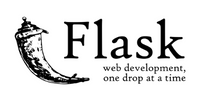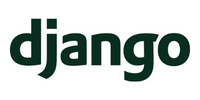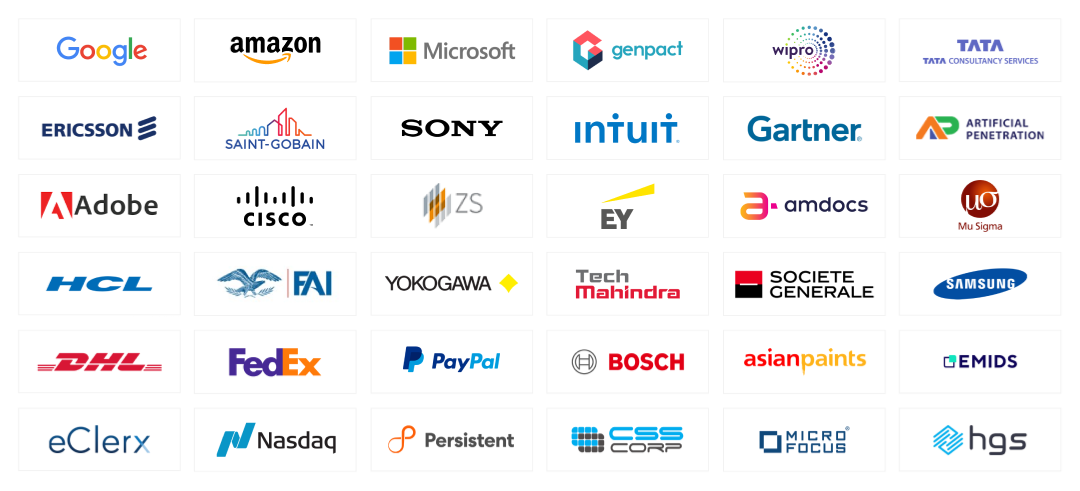Home » Python Developer
Python Developer Course
Become a Python Developer Professional with the Elearners365 Course!
- Elevate your Python skills with our Developer Certification Course.
- Gain industry recognition as a certified Python Developer.
- Python programming through hands-on training and certification.
- Advance your career with our comprehensive Python Developer Certification.
Key Highlights

40 hours of guided instruction

Certification upon completion

Hands-on projects

Flexible scheduling options

Job placement support

Ongoing support from mentors

Comprehensive curriculum

Live classes held daily
Python Developer Course Overview
This course offers a comprehensive exploration of Python programming, covering essential concepts, advanced techniques, and practical application in various domains such as web development, data science, and machine learning.
In this course, you will delve into a wide range of topics essential for mastering Python programming. You’ll start with the basics, learning about variables, data types, control structures, and functions. As you progress, you’ll explore more advanced concepts such as object-oriented programming, file handling, and error handling. Additionally, you’ll gain practical experience by working on projects that simulate real-world scenarios, including web development using frameworks like Django or Flask, data analysis with libraries like Pandas and NumPy, and machine learning using tools like TensorFlow or scikit-learn.
This Python developer course is ideal for individuals with varying levels of programming experience. Whether you’re a complete beginner looking to start your journey in programming or an experienced developer aiming to expand your skill set, this course caters to a wide audience. Specifically, aspiring programmers, software developers, data scientists, researchers, and professionals from diverse backgrounds who want to leverage Python for scripting, automation, web development, data analysis, or machine learning will find this course beneficial.
While there are no strict prerequisites for taking up this Python developer course, having a basic understanding of programming concepts and familiarity with computer science fundamentals will be advantageous. Knowledge of concepts such as variables, loops, functions, and data structures will help you grasp Python concepts more quickly. However, even if you’re entirely new to programming, the course offers beginner-friendly content and guidance to help you build a strong foundation in Python programming.
Enrolling in our Python developer course online from elearners365 offers numerous advantages. Firstly, you’ll have access to high-quality, comprehensive content that covers all aspects of Python programming, from fundamentals to advanced topics. Our course is designed to be flexible, allowing you to learn at your own pace and convenience, making it suitable for busy professionals or individuals with varying schedules. Additionally, you’ll benefit from hands-on projects and exercises that reinforce your learning and provide practical experience. Furthermore, our course is led by experienced instructors who are experts in Python programming, ensuring that you receive expert guidance and support throughout your learning journey. Finally, upon successful completion of the course, you’ll receive a certification that validates your Python programming skills, enhancing your credibility and career prospects in the competitive tech industry.
Python Developer Career Transition
Transitioning into a Python developer career involves acquiring skills in Python programming, software development, and application design, typically through formal education, self-directed learning, or specialized courses, to pursue opportunities in software development roles.

Average salary increase of 45%

30 LPA Highest Salary

Expert in Python Programming

Engage with professional networks
Skills Covered
- Python fundamentals
- Object-oriented programming
- Web development
- Data manipulation
- Database integration
- Error handling
- File handling
- Testing and debugging
- Introduction to machine learning
Tools Coverd








Cost of Enrolling in Python Developer Training
Understanding the costs of enrolling in Python developer training is crucial for making informed decisions about investing in your education. By evaluating expenses relative to potential benefits, individuals can assess the value of pursuing these learning opportunities.
Group Batch
Rs 25,000
Plus 18% GST
- Learning Mode: Online Instructer led
- Learn from anywhere
- Learn from Industry Expert
- Daily Live Classes: 2 Hours
- Dedicated Doubt Resolution Sessions
- 90 Hours Course Duration
- Course Completion Certification
- 3-Month No-Cost EMI Available
- Job Assistance Provided
New Batch Starts Every Week
Upto 10 Student
1:1 Batch
Rs 60,000
Plus 18% GST
- Learning Mode: Online Instructer led
- Learn from anywhere
- Learn from Industry Expert
- Daily Live Classes: 2 Hours
- Dedicated Doubt Resolution Sessions
- 90 Hours Course Duration
- Course Completion Certification
- 6 Month No-cost Emi Avilable
- Job Assistance Provided
New Batch Starts Every Week
Single Student
- Live Classes
Module 1: Introduction to Python Programming
- Basics of Python syntax
- Variables, data types, and operators
- Control flow statements (if, loops)
- Functions and modules
- Input/output operations
Module 2: Data Structures and Algorithms
- Lists, tuples, sets, and dictionaries
- String manipulation
- File handling
- Recursion
- Sorting and searching algorithms
Module 3: Object-Oriented Programming (OOP)
- OOP concepts (classes, objects, inheritance, polymorphism)
- Encapsulation, abstraction, and data hiding
- Exception handling
- Testing and debugging
Module 4: Web Development with Python
- HTML and CSS basics
- Introduction to web frameworks (e.g., Flask, Django)
- Creating dynamic web applications
- Database integration (e.g., SQLite, MySQL)
Module 5: Database Programming
- Introduction to SQL
- Database concepts (tables, queries, joins)
- Using Python to interact with databases
- Database connectivity and management (e.g., SQLite, PostgreSQL)
Module 6: GUI Programming
- Introduction to GUI frameworks (e.g., Tkinter, PyQt)
- Building graphical user interfaces
- Event-driven programming
- Creating interactive applications
Module 7: Data Analysis and Visualization
- Introduction to data analysis libraries (e.g., Pandas, NumPy)
- Manipulating and analyzing data
- Data visualization using libraries like Matplotlib, Seaborn
Module 8: Web Scraping and Automation
- Basics of web scraping
- Using libraries like
- Using libraries like Beautiful Soup and Scrapy for web scraping
- Handling APIs and JSON data
- Automating tasks with Python (e.g., web automation, file manipulation)
Module 9: Machine Learning and Data Science
- Introduction to machine learning concepts
- Supervised and unsupervised learning algorithms
- Using libraries like scikit-learn for machine learning tasks
- Data preprocessing and feature engineering
- Model evaluation and selection
Module 10: Deployment and Cloud Computing
- Introduction to cloud platforms (e.g., AWS, Azure)
- Deploying Python applications to cloud platforms
- Containerization using Docker
- Introduction to serverless computing
- Managing cloud resources and scaling applications
Module 11: Web APIs and Microservices
- Building RESTful APIs using frameworks like Flask or Django
- Authentication and authorization for APIs
- Microservices architecture and design principles
- Service discovery and orchestration
Module 12: Testing and Quality Assurance
- Unit testing and test-driven development (TDD)
- Test frameworks like pytest
- Code quality and linting
- Continuous integration and continuous deployment (CI/CD) pipelines
Module 13: Security and Best Practices
- Common security vulnerabilities in Python applications
- Handling user input securely
- Secure coding practices and defensive programming
- Logging and error handling for robust applications
Module 14: Advanced Topics and Specializations
- Advanced Python features and libraries (e.g., generators, decorators)
- Specializations such as data engineering, natural language processing, or computer vision
- Exploring emerging trends in Python development
Module 15: Final Project
- Developing a comprehensive Python project that encompasses the concepts learned throughout the course
- Planning, designing, and implementing the project from scratch
- Testing, debugging, and documenting the project
Module 16: Natural Language Processing (NLP)
- Introduction to NLP and its applications
- Text preprocessing and cleaning
- Tokenization, stemming, and lemmatization
- Sentiment analysis and text classification
- Named entity recognition and part-of-speech tagging
Module 17: Big Data Processing
- Introduction to big data concepts and challenges
- Working with distributed computing frameworks (e.g., Apache Spark)
- Processing large datasets using PySpark
- Data streaming and real-time processing
Module 18: Deep Learning and Neural Networks
- Introduction to neural networks and deep learning
- Building neural networks using libraries like TensorFlow or PyTorch
- Convolutional Neural Networks (CNNs) for image recognition
- Recurrent Neural Networks (RNNs) for sequence data
- Transfer learning and model fine-tuning
Module 19: DevOps and Infrastructure as Code
- Introduction to DevOps principles and practices
- Configuration management tools (e.g., Ansible)
- Infrastructure provisioning with tools like Terraform
- Continuous Integration/Continuous Deployment (CI/CD) pipelines
- Monitoring and logging in a production environment
Module 20: Advanced Web Development
- Websockets and real-time communication
- REST API authentication and authorization mechanisms
- Building scalable and high-performance web applications
- Performance optimization techniques
- Integration with external services and APIs
Course Enquiry
Python Developer Projects
Python Developer Certification
In this Python Developer Certification, you will learn essential programming concepts, advanced techniques, and practical application in various domains such as web development, data science, and machine learning.
To become a certified Python Developer, you can enroll in a certification program that covers Python programming fundamentals, advanced topics, and hands-on projects. Upon successful completion of the program and passing the certification exam, you will receive official certification as a Python Developer.
The roles and responsibilities of a Python Developer typically include developing and maintaining Python-based applications, writing efficient and scalable code, collaborating with cross-functional teams, troubleshooting and debugging issues, and staying updated with the latest trends and technologies in Python development.
The validity of the Python Developer Certification depends on the certifying body and the specific certification program. Typically, certifications remain valid for a certain number of years, after which you may need to renew or recertify to demonstrate ongoing proficiency and knowledge in Python development.

Placement Target Companies

Python Developer Certification Training FAQs
Python programming is a high-level, interpreted language known for its simplicity and readability. It is widely used for various applications such as web development, data analysis, artificial intelligence, and automation. Python’s versatility and large community support make it an essential tool for developers worldwide.
The prerequisites for enrolling in a Python developer course may vary depending on the program, but generally, a basic understanding of programming concepts and familiarity with computer science fundamentals are beneficial. Knowledge of variables, control structures, functions, and data types can facilitate the learning process.
A typical Python developer course covers fundamental concepts like variables, data types, control structures, and functions, along with more advanced topics such as object-oriented programming, web development with frameworks like Django or Flask, data manipulation and analysis using libraries like Pandas and NumPy, and introduction to machine learning.
Python developers have diverse career opportunities in various industries, including software development, web development, data science, machine learning, artificial intelligence, cybersecurity, and DevOps. They can work as software engineers, web developers, data analysts, machine learning engineers, or Python consultants, among other roles.
To prepare for a Python developer course and maximize learning outcomes, you can start by familiarizing yourself with basic programming concepts using online resources, tutorials, and interactive platforms. Additionally, practicing coding exercises, working on mini-projects, and participating in coding communities can enhance your skills and confidence.
During the Python developer course, students typically have access to various support resources, including instructor-led lectures, hands-on coding exercises, discussion forums, and online materials such as video tutorials, documentation, and supplementary reading materials. Additionally, some courses offer mentorship programs or one-on-one support sessions to address individual learning needs.
When evaluating the quality and credibility of a Python developer course, consider factors such as the qualifications and expertise of the instructors, the comprehensiveness of the curriculum, the availability of practical hands-on projects, the reputation and reviews of the course provider, and any industry recognition or certification offered upon completion of the course. Additionally, you can look for testimonials or success stories from past students to gauge the effectiveness of the course in achieving learning objectives.
